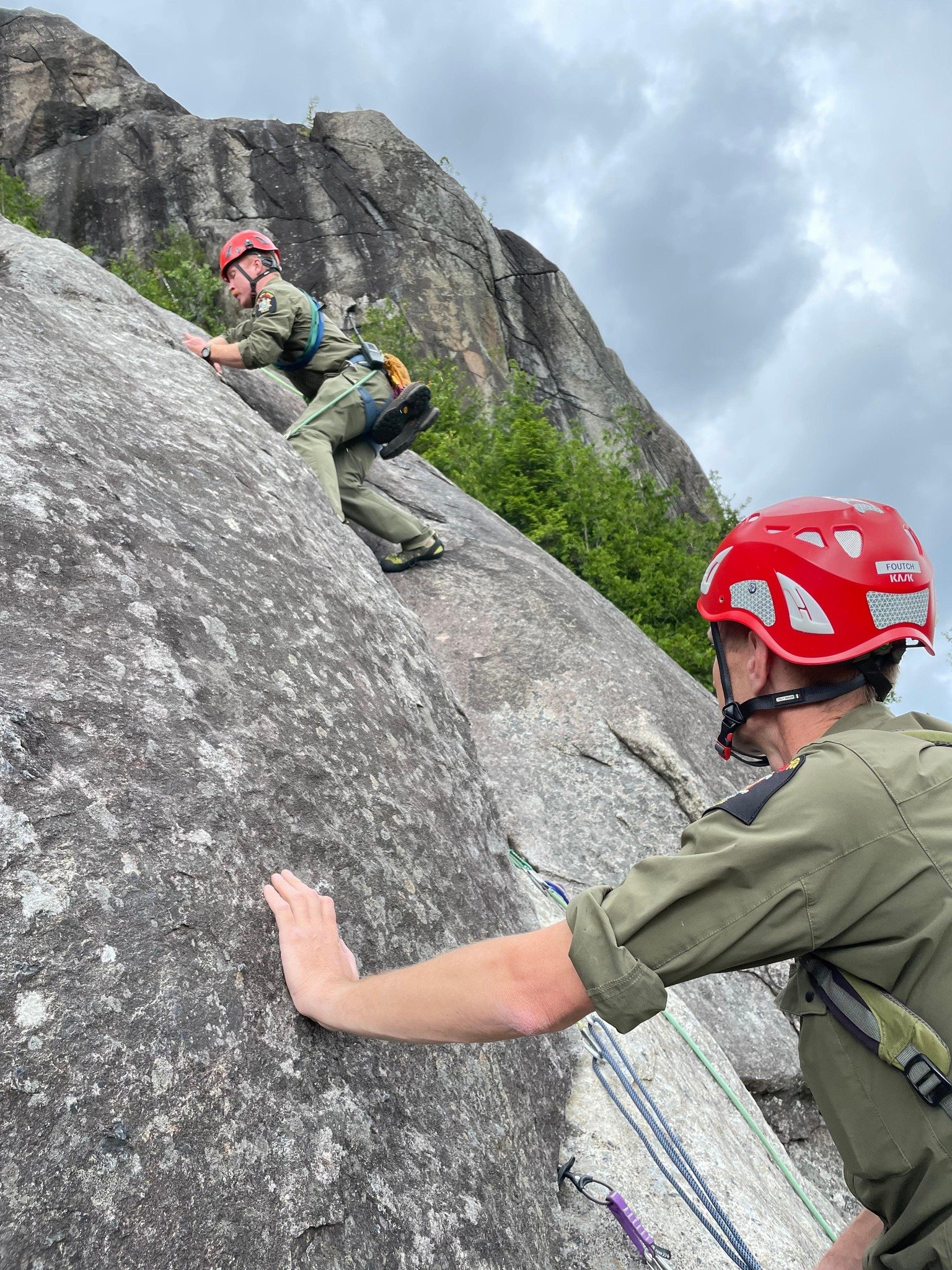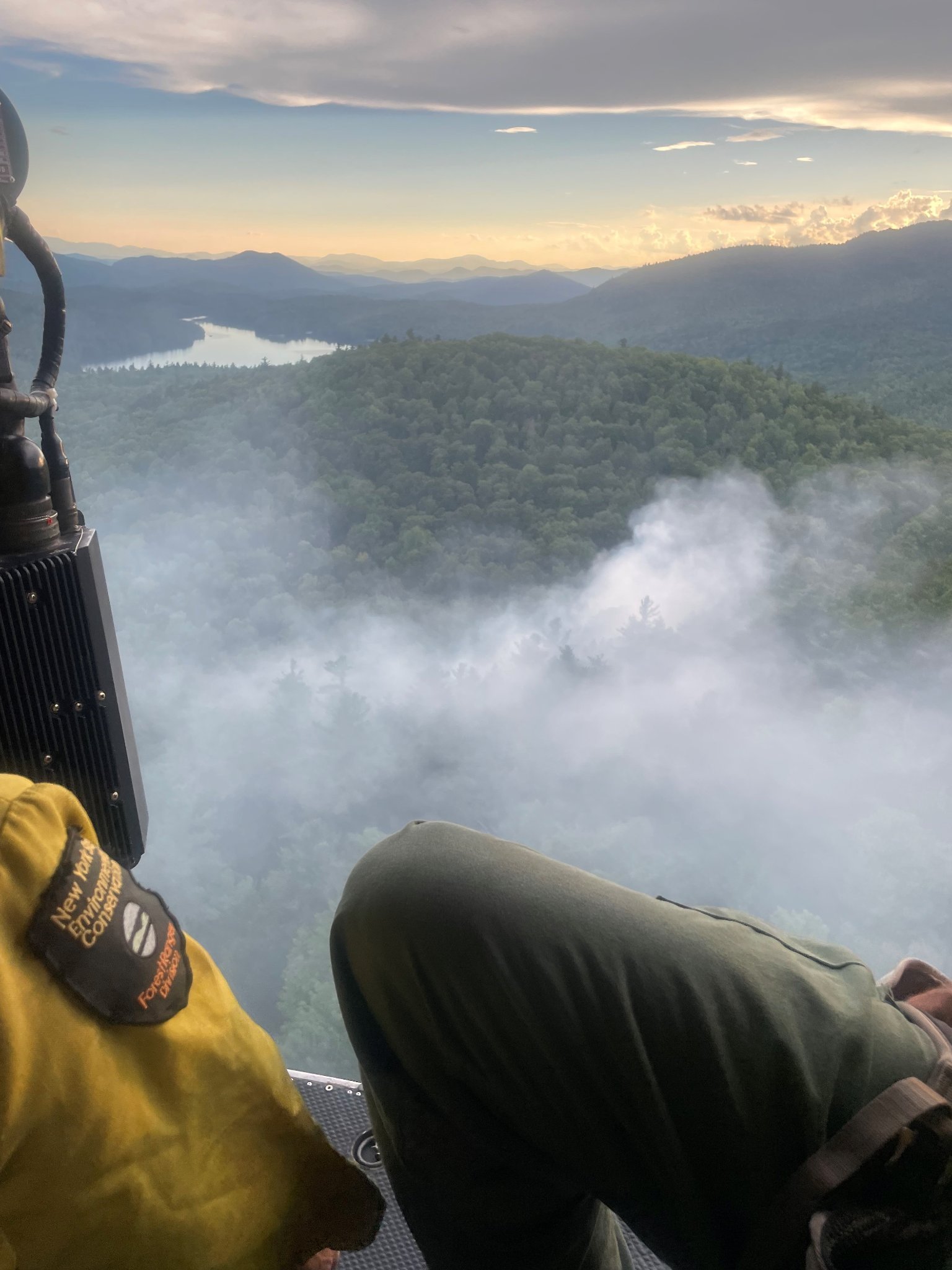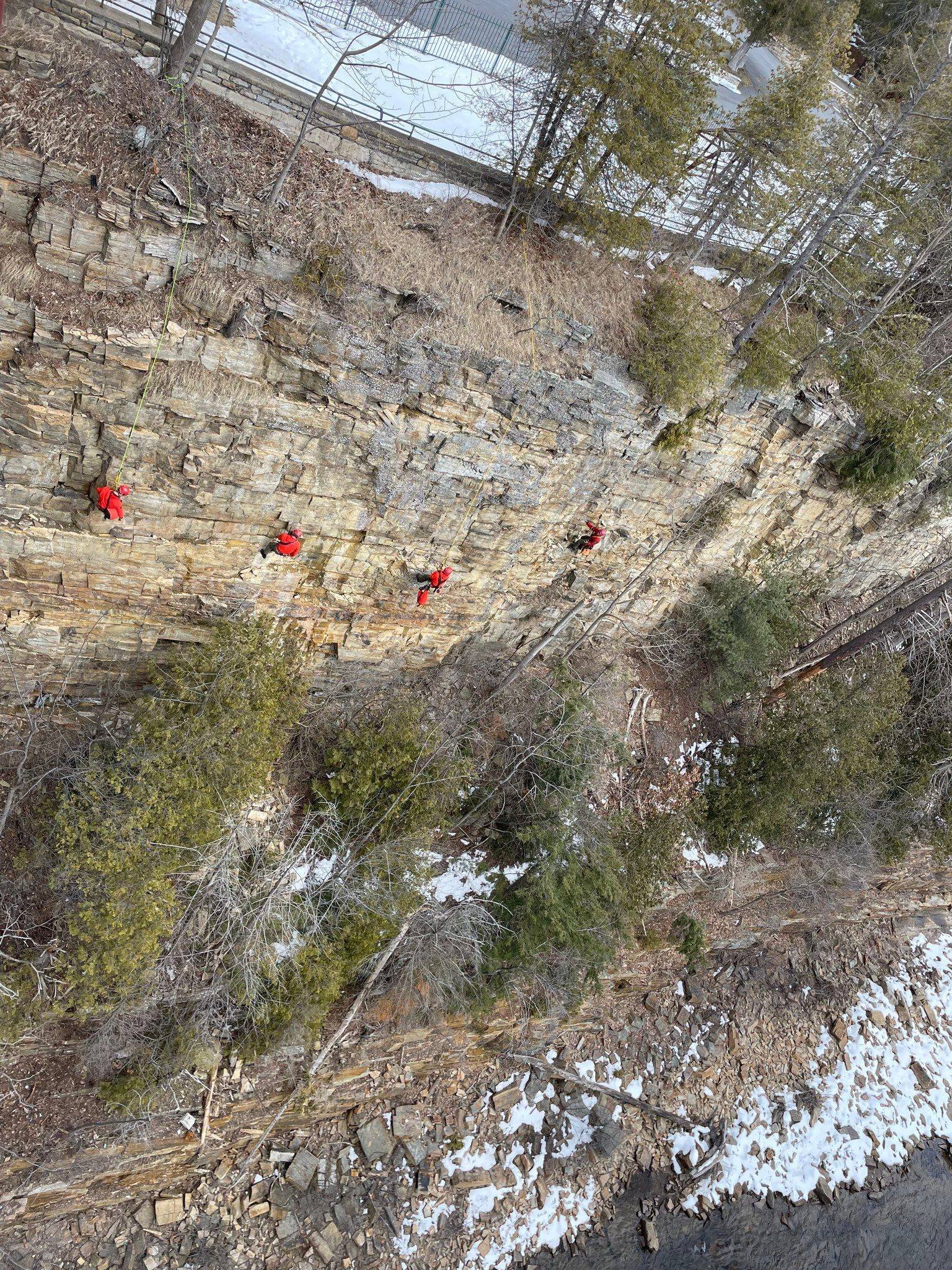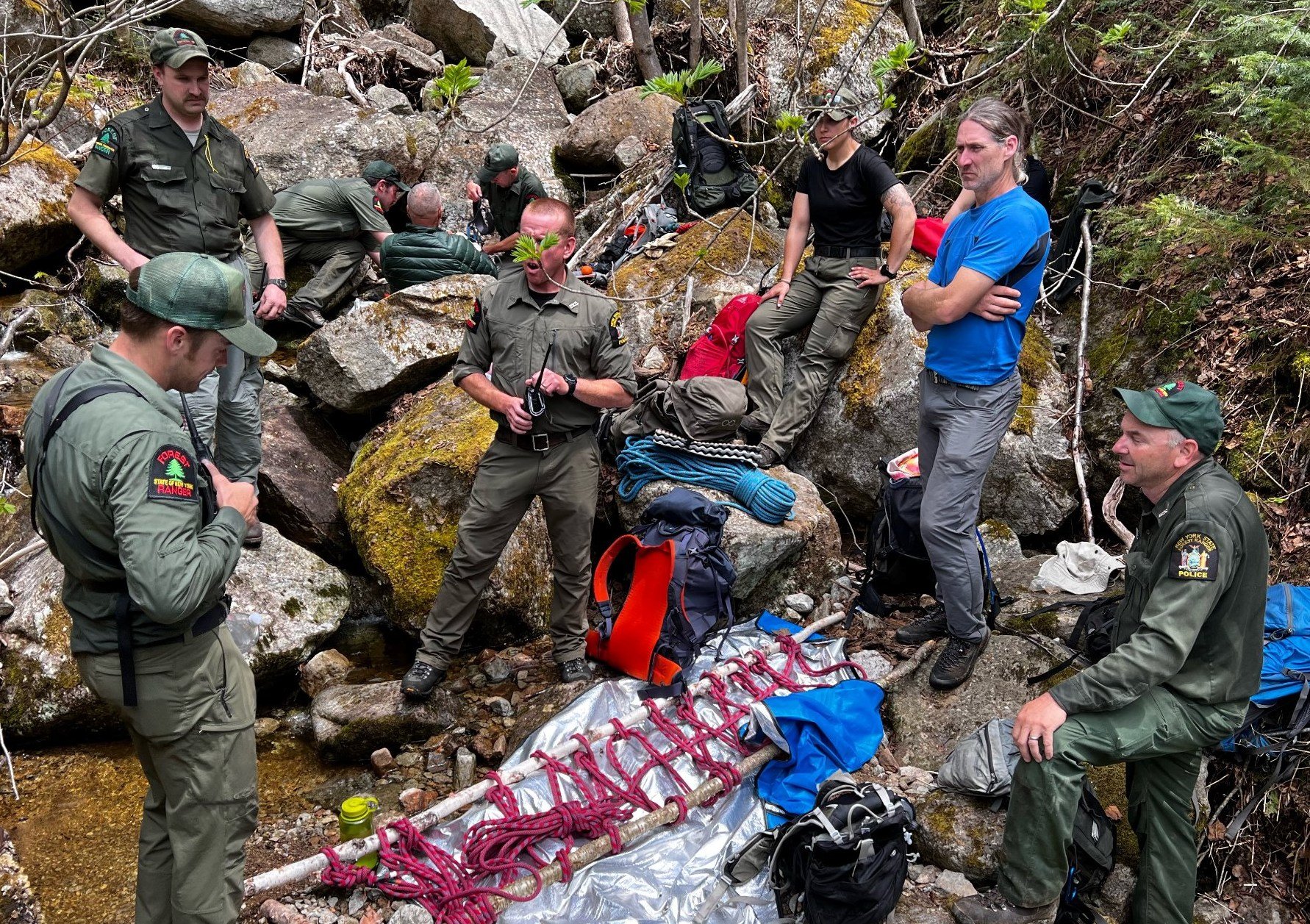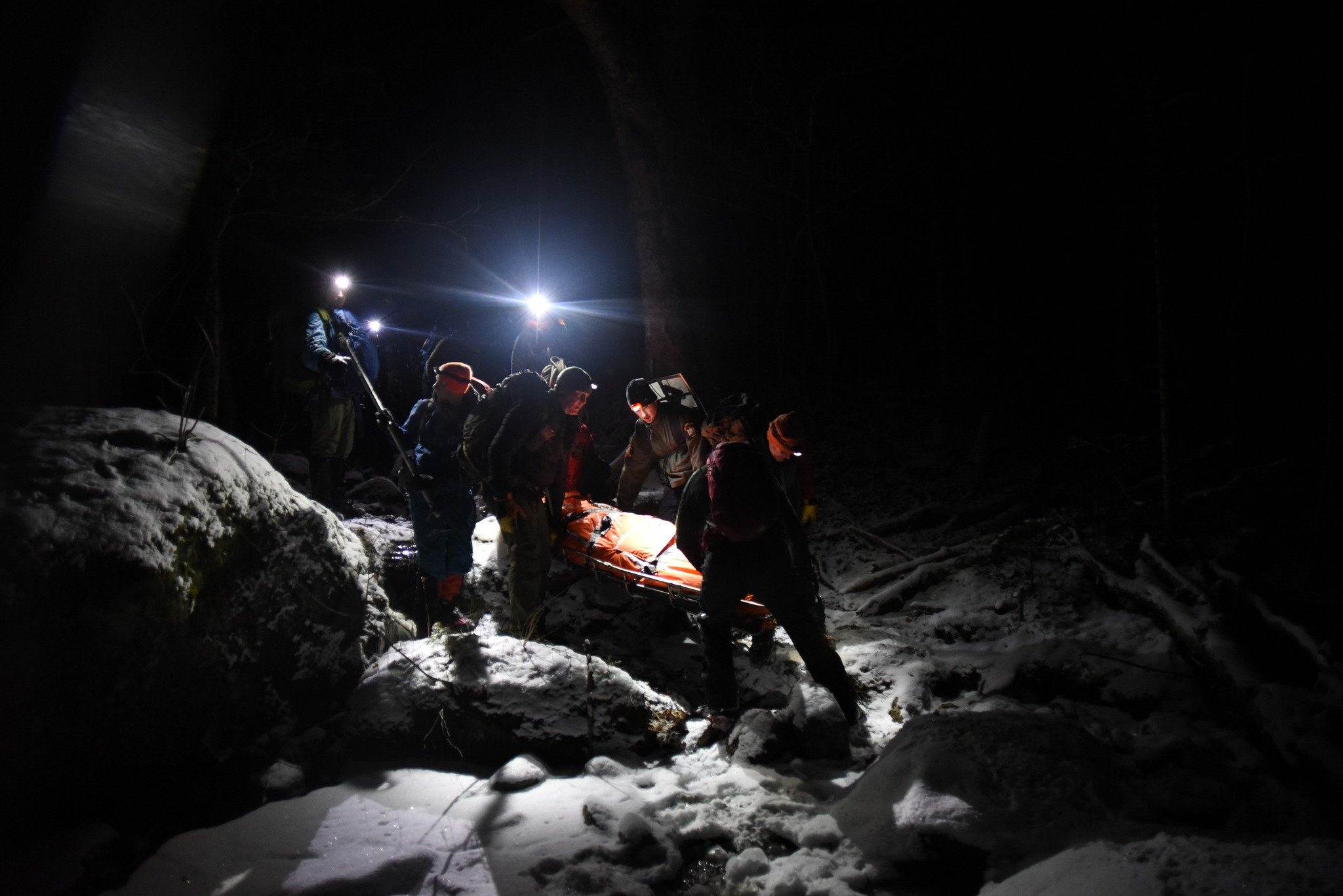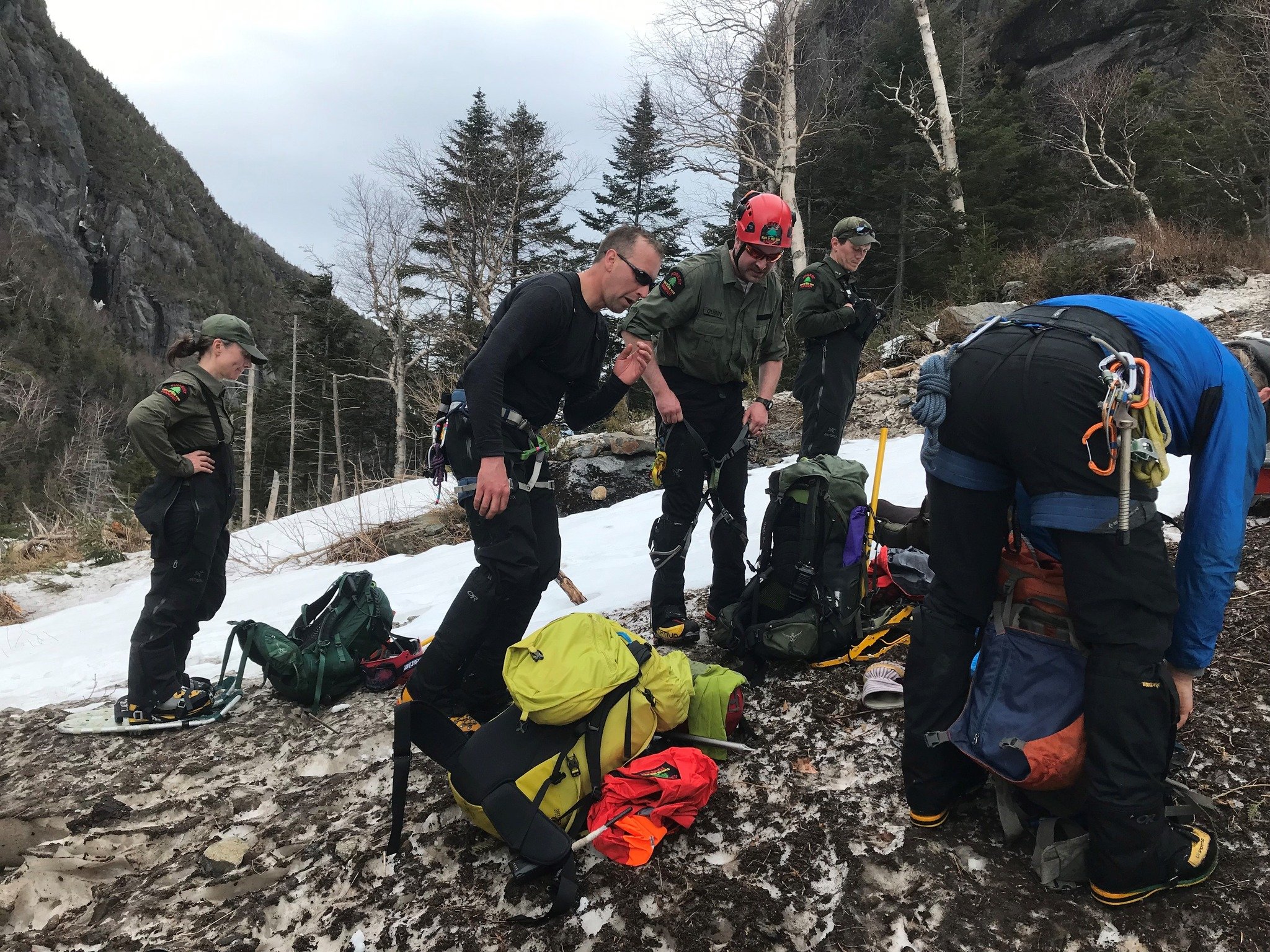NEW YORK'S ELITE FOREST POLICE REVEAL SECRET DISCIPLINARY RECORDS
POLICE ACROSS THE STATE ARE DEFYING A NEW, GEORGE FLOYD-INSPIRED REFORM LAW MANDATING POLICE DISCIPLINARY RECORDS BE PUBLIC, BUT FOREST RANGERS LEAD THE WAY AND DISCLOSE 20 YEARS’ WORTH TO THE FREE LANCE
New York State Forest Ranger swearing in ceremony 2022. Photo Credit: Dep’t of Environmental Conservation via Facebook.
THE FREE LANCE NEEDS YOUR DONATIONS TO SURVIVE. DONATE HERE.
While his elite New York State Forest Ranger colleagues hunted two escaped, convicted murderers on the run in the Adirondack wilderness in 2015, Ranger Joseph Hess thought it was a good idea to "transplant" poison ivy into a public forest to discourage people from meeting there for sex.
That's according to a cache of police disciplinary records exclusively obtained by The Free Lance from the New York State Department of Environmental Conservation. The records were released in response to a state Freedom of Information Law request.
Other police agencies across New York continue to defy a new, George Floyd-inspired police reform law requiring police disciplinary records be made public, but the DEC is giving the public a peek at some of what others are fighting in court to keep secret.
Broadly, the records appear to be fairly representative of the type of disciplinary challenges rural police forces face. They suggest what other rural law enforcement agencies’ records might reveal. For example, the State Police—who continue to fight the release of its disciplinary records in court, the Albany Times Union reported Tuesday.
Still, the records obtained by The Free Lance are unique in that they reflect the singular, specialized mission of New York’s Forest Rangers: the Boy Scouts of law enforcement.
"We're medics, we're fire-fighters and police," said Allison Rooney, who graduated from New York's famed six-month long Ranger Basic School in 2022. "We're a combination of first-responder positions."
Rooney is one of 10 women who graduated in a class of 38—the largest Ranger class in state history.
DEC deploys Forest Rangers primarily to enforce State environmental law. They also fight forest fires, conduct search, rescue or recovery operations and assist other law enforcement agencies—typically in searching for evidence or suspects in wild places, including escaped prisoners. The Rangers' four-wheel drive patrol vehicles carry everything from high-powered, automatic rifles to mountain-climbing ropes to inflatable white-water rafts to snakebite treatment kits.
Standard-issue Forest Ranger patrol vehicle. Photo Credit: Dep’t of Environmental Conservation via Facebook.
Rangers have one of the wildest police beats in America.
Currently, a record-sized 159-member force patrols and protects a total of five-million acres of publicly-owned, DEC-managed forests and public-access easements on private land, according to the DEC website. Nearly three million acres are wild forest or wilderness lands required by the State Constitution to be kept "forever wild."
Of course, beside the land, Forest Rangers also protect the people who use it .
"You need to be self-motivated. We work with very limited supervision," Ranger Lt. David Pachan says on the DEC website.
"Good land navigation skills are a must. You have to be comfortable by yourself since you are often navigating in the backcountry wilderness alone."
The Free Lance asked DEC to disclose the disciplinary records of its Rangers and a separate group of police officers it employs primarily to enforce hunting and fishing laws as well as commercial environmental regulations, Environmental Conservation Officers or ECOs, going back 20 years. To enable meaningful evaluation of the effectiveness of its internal, administrative disciplinary process, The Free Lance specifically asked for substantiated findings of misconduct as well as unsubstantiated charges.
DEC initially responded by releasing the disciplinary records of three Forest Rangers and two ECOs. The oldest from 2014.
New York State Forest Rangers in action. Photo Credit: Dep’t of Environmental Conservation via Facebook.
Richard Matt and David Sweat broke out of the maximum-security Clinton Correctional Facility during the night of June 5-6, 2015. Forest Rangers were dispatched at daybreak to assist in the hunt for the escaped killers. The following day, June 7, Hess, a Forest Ranger in Rensselaer County outside Albany, "planted poison ivy by a hiking trail along Route 7" in Tibbits State Forest, according to the records.
Hess acted "with intent to discourage sexual activity/public lewd behavior," the records allege. The place he planted the poison ivy was "near an area known for public lewdness."
Mark Cadrette, DEC's administrative disciplinary authority, recommended Hess be suspended three days without pay and that he forfeit any accrued vacation days. DEC settled the case against Hess for loss of a single vacation day.
Three weeks after Hess planted the poison ivy to discourage what the DEC called "public lewdness," the Supreme Court ruled that laws banning gay marriage were unconstitutional. The ruling came 12 years after the High Court struck down laws criminalizing consensual sodomy in 13 states.
ECO Nathan Favreau allegedly treated a property owner in an "unprofessional manner," according to DEC's disciplinary records. Cadrette recommended 10 days' suspension without pay and loss of any accrued vacation days. DEC settled the case by requiring Favreau complete two classes. One in "conflict resolution," the other "emotional intelligence in the workplace."
ECO Brian Wilson failed to respond to a shots-fired call from dispatch because of an unspecified "medical issue." One of the charges filed against him is entirely redacted. Cadrette recommended five days suspension without pay and loss of accrued vacation days; DEC settled the case with a formal reprimand.
During the Wuhan virus pandemic, Forest Rangers provided security at vaccination sites. At one site in Albany, Ranger Jacob Murphy developed a bad habit. He regularly removed his gun belt and left it in a command trailer while he used a bathroom in another trailer. DEC filed six charges against him, all basically for the same thing: failing to carry and secure his weapon.
Cadrette recommended firing and loss of accrued vacation days. He wrote:
Your negligent and careless actions ... on numerous occasions is extremely alarming and intolerable. Your extreme lack of judgment is concerning to the agency and the agency is disappointed that your actions have resulted in a negative portrayal of the NYSDEC and have damaged the agency’s reputation.
DEC settled the case for a 3 1/2 month suspension plus three years probation. Murphy is still a Forest Ranger today.
Finally, an uninsured motorcycle missing its license plate but belonging to Ranger Peter Evans was found crashed by the State Police in the middle of the night, June 10, 2014. Evans refused to cooperate in the State Police investigation.
"I'm not going to work with you," he told State Police Sgt. April Strack.
Evans also allegedly lied to fellow DEC officers. He told investigators his "motorcycle must have been stolen." Cadrette alleged Evans claimed to have "walked home, when in fact, you drove the motorcycle, were in an accident, and abandoned the motorcycle.”
Cadrette recommended firing Evans: "Your actions are contrary to your oath as a Forest Ranger ... and calls into question your credibility to carry out your duties as a New York State sworn police officer."
DEC settled the case for a nine-month suspension, another measure redacted in the records provided and a transfer to an even more remote area of the state—where Evans remains serving the public as a Forest Ranger to this day.
Dep’t of Environmental Conservation police disciplinary records obtained by The Free Lance via state Freedom of Information Law requests.
As detailed as the disciplinary records the DEC provided to The Free Lance in response to its Freedom of Information Law request are, they do not appear to be complete.
The records do not include official "counseling" or "reprimand" letters placed in officers' official records in response to allegations of discipline that were never formally charged—which the records DEC did provide show to be a routine practice.
A spokesperson for DEC told The Free Lance counseling is part of the collective bargaining agreement between New York State and the Police Benevolent Association of New York State.
“Counseling is not disciplinary,” DEC claims. It is “an effort on the part of a supervisor to provide to an employee, positively or negatively, significant feedback regarding on-the-job activity.”
“It is meant to be a positive communications device,” they added, “clarifying what has occurred and what is expected.”
The documents initially released by DEC did not include the disciplinary records of Charles Richardson, another Forest Ranger. Ranger Richardson was found by the State Inspector General in a 2020 report to have moonlighted while on duty, stole DEC equipment, failed to file required reports and had sex with two women, separately, on multiple occasions, while on duty and in uniform, "on or near State forest lands" as well as in a DEC office.
Only after The Free Lance inquired about the apparently missing records did DEC provide them. They revealed DEC hit RIchardson with 10 charges, each containing multiple specifications. Some charges included dozens of specifications, each a separate incident of alleged misconduct. Richardson resigned in December 2020.
In exchange for Richardson’s resignation, DEC agreed to provide a neutral employment reference to any law enforcement agency that requested one.
THE FREE LANCE NEEDS YOUR DONATIONS TO SURVIVE. DONATE HERE.
